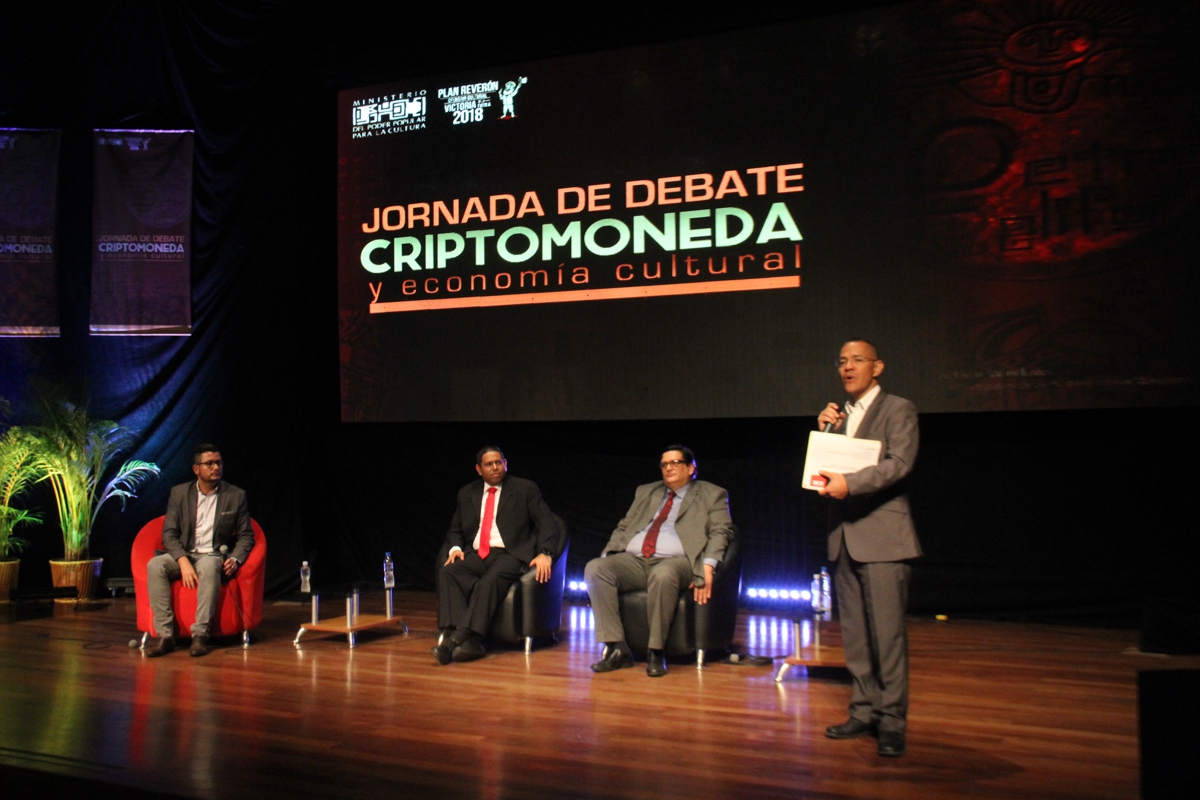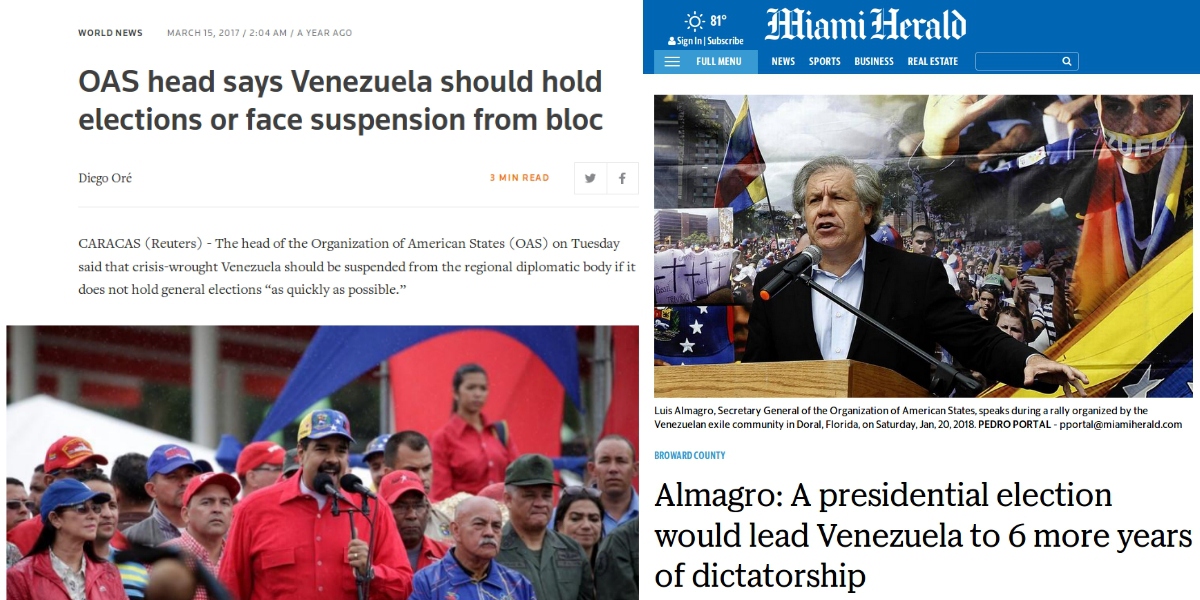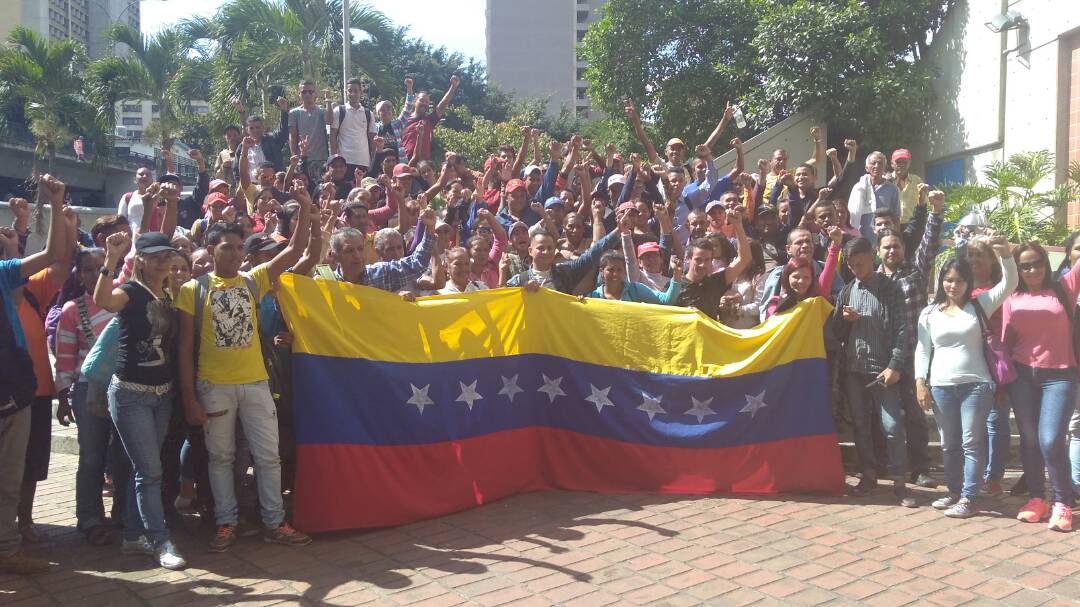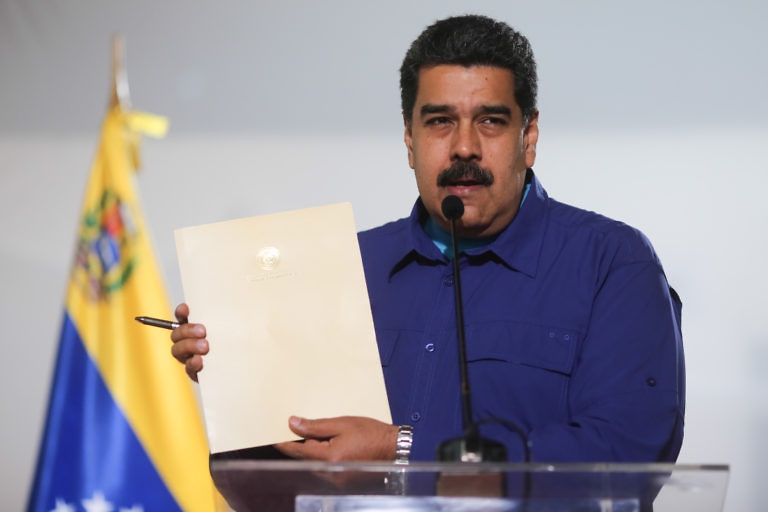In this article, originally published on venezuelanalysis.com, Ricardo Vaz provides an interesting analysis of the situation in Venezuela. He argues that the Venezuelan people must take the fight to their parasitic importer bourgeoisie if the nation is to overcome the international imperialist siege.
The situation was bleak for the Bolivarian Revolution last spring. With a dire economic situation and a growing wave of violent opposition protests, Venezuelan President Nicolás Maduro turned the tables by convening a Constituent Assembly. From that point, we witnessed a resurgence of Chavismo, with the success of the Constituent Assembly followed by resounding victories in regional and municipal elections. But with presidential elections now on the horizon, significant challenges remain to be solved for the Bolivarian Revolution while the imperialist pressure is ratcheting up.
The Constituent Assembly did deliver on what was perhaps its most important pledge, which was peace. The opposition attempt to boycott it completely backfired and the violent street protests subsided. The replacement of the chief prosecutor saw a renewed effort in the battle against corruption, particularly in the state oil company PDVSA. The most prominent of those accused is former oil chief Rafael Ramírez (1).
Nevertheless, there has been no tackling of the severe economic crisis. People have been clamouring for action against the economic war from the Constituent Assembly while shortages have worsened and prices have skyrocketed, with salary raises and bonuses unable to keep up. There have been episodes of looting and workers in state companies, while stressing that they have nothing to do with the opposition, have complained about the crumbling infrastructure and their rapidly declining working conditions and living standards.
But there have also been potentially positive developments in recent weeks. A long overdue law granting legal status to workers councils was passed by the Constituent Assembly. The creation of workers councils in workplaces could be a weapon against sabotage from capitalists (more on this later).
 Culture Minister, Ernesto Villegas, speaking in a forum dedicated to cryptocurrencies / Image: Alexander Lourido, Venezuelan Ministry for Culture
Culture Minister, Ernesto Villegas, speaking in a forum dedicated to cryptocurrencies / Image: Alexander Lourido, Venezuelan Ministry for Culture
Currency exchange controls have also been overhauled. The preferential rate of 10 bolivars per dollar was scrapped and a revamped DICOM auction system was launched, with an exchange rate to be set by supply and demand. The hope is that this will do away with what was a tremendously lucrative avenue for corruption and speculation and burst the bubble of the black market. Alongside the creative launch of the Petro cryptocurrency, the government hopes to gain some breathing space in the short term.
In this context of economic turmoil but political momentum, the Venezuelan government announced that an agreement for democratic coexistence with the opposition, negotiated in the Dominican Republic, was on the verge of being signed. The government delegation signed what they claimed, and mediators such as Rodríguez Zapatero confirmed, was the final agreement, but the MUD opposition delegation did not. Shortly after, presidential elections, one of the issues that were being negotiated, were set for April 22, a date that allegedly the MUD had agreed to.
From dialogue to a coup
The Venezuelan opposition engaged in the dialogue only to refuse to sign the document at the 11th hour, perhaps after receiving instructions from Uncle Sam. The agreed-upon document established guidelines for coexistence, stipulations concerning presidential elections and a call for the withdrawal of the sanctions that they have been applauding.
The opposition quickly released another document with their demands dating back to December, which undermined their whole narrative of not negotiating with “the dictatorship”. We should recall that violent protests were unleashed last year with the demand for immediate presidential elections. OAS Secretary General and chief opposition cheerleader Luis Almagro led the chorus. But now that elections have been set, they are not accepted and its results unrecognised in advance.
 OAS Secretary General, Luis Almagros' shifting opinions on the need for elections / Image: left, Reuters peice on March 15 2017; right, Miami Herald piece on January 20 2018
OAS Secretary General, Luis Almagros' shifting opinions on the need for elections / Image: left, Reuters peice on March 15 2017; right, Miami Herald piece on January 20 2018
By walking away at the last minute the Venezuelan opposition dealt another blow to its credibility and backed itself further into a corner. After going back and forth last year on whether to participate in elections, the agreement with the government would have given the opposition some chance to save face and say, “We will participate in the elections because now we have more guarantees." At this point, it is not clear if they will take part in the presidential elections. They are basically hoping for an imperial miracle that will deliver them back to power.
The US’ strategy is clear enough. Backing the opposition in an election is also not a priority. Given Chavismo’s surprising resilience and the opposition’s stumbling from one blunder to the next, this avenue does not offer enough of a chance of success. So from the US’ point of view, full of imperial arrogance, it is safer to pre-emptively declare any election as being invalid.
With its European and Latin American lackeys not far behind, it will keep increasing the sanctions and financial blockade against Venezuela, possibly culminating in an oil embargo that would cripple Venezuela’s main income source. The goal is to impose so much suffering on the Venezuelan people that the armed forces, or a sector of them, would be compelled to take power in a coup. Call it the “Chilean model”. US leaders, from Rex Tillerson to Marco Rubio, have openly endorsed this.
The calls for a foreign invasion have grown louder in recent days, with constant military drills and recent troop movements in Brazil and Colombia that have nothing to do with “humanitarian concerns” (2), as well as internal sabotage attacks. This prospect still remains unlikely and deeply unpopular, but things can change quickly. The mainstream media have been beating on this drum constantly, irrevocably wedded to the notion of American exceptionalism, so we know there will be no opposition from them.
Not enough socialism
Analysts often tend to overstate things and refer to upcoming events as “decisive”, “crucial” or “make or break”. Without diminishing the fact that Venezuela is the main obstacle to US hegemony in Latin America, we should be clear about what is at stake.
A return to power of the bourgeoisie, electorally or otherwise, would have disastrous consequences for the poor and working class in Venezuela. The economic crisis would be solved on the backs of the workers through massive cuts, layoffs and dismantling of social programs. And all the bottled rage from these past 20 years would be unleashed with a vengeance against all those looking like Chavistas.
However, this does not mean that everything will be solved if the threat of a coup subsides and Maduro gets reelected. The fact that the US is hell-bent on removing Maduro does not mean that everything he does is a step towards socialism. The logic works the other way around. And despite all the progress and the rhetoric, mostly from opponents of the Bolivarian Revolution, capitalism is still very much in place in Venezuela.
The Venezuelan government has gone out of its way in the recent past to offer assurances to investors, national and foreign, that their investments will be lucrative in Venezuela and safe from the dangers of nationalisations (3). Difficult circumstances might force one to make a deal with the devil, or as they are more commonly known, mining companies. Another policy that continues is the handing out of dollars to private companies in the hope that they will do the honourable thing and import whatever they promised to.
The strategy of offering some concessions to capitalists and calling for dialogue has clearly not worked. It has been met with increasing hostility and crippling sanctions, while the bourgeoisie has constantly sabotaged the distribution chain as a way to attack Chavismo. Even if everything was magically restored to how it was before Chávez was first elected, that still would not be enough for the global oligarchy and their Venezuelan proxies, who foam at the mouth at the notion of a former bus driver standing between them and the oil rent.
The efforts to stave off a coup and to defeat the economic war go hand in hand. The state needs to assume all control over imports, nationalise the financial sector and all companies involved in the economic war, so that dollars are no longer squandered or shipped to tax havens. But state control is not enough, overall there needs to be an increased worker control over the economy, especially through the communes, to ensure that all resources are used in the interest of the people.
 People from the Simon Planas municipality protest against the results of the municipal elections / Image: El Maizal Commune
People from the Simon Planas municipality protest against the results of the municipal elections / Image: El Maizal Commune
This is not an issue of personal preference or faith, it is a matter of removing (economic) power from those who wage the economic war and call for imperial intervention. The mobilisation of the workers and the reinforcement of popular self-defence units are the best defence against a coup. For all the natural resources in Venezuela, its most powerful asset is still a mobilised people.
In the long run companies under workers' control and communes have the potential to form territorial archipelagos where the social relations are not (fully) of a capitalist nature, which are thus more immune to the economic war. This has been a constant debate in the Bolivarian Revolution. It is not a question of choosing the optimal way to construct socialism, rather this is the only way to construct socialism in Venezuela, and it is the only way that the Bolivarian Revolution will survive. Comuna o nada!
On this matter, it should be mentioned that there have been worrying episodes in recent times. From the legal roadblocks imposed on El Maizal commune leader Angel Prado's mayoral candidacy, to cases where security forces come down on the side of landowners in disputes where communes want to put unproductive land to work, or the arrest of critical trade unionists, there is a legitimate concern that the more radical elements of the Bolivarian Revolution are being stifled.
But it should go without saying that the duty of leftist and progressive movements around the world is to stand in solidarity with the Venezuelan poor and working class, which means first and foremost opposing imperial aggression, in the form of sanctions or worse. After that is established there is room to discuss and be critical about the internal dynamics of the Bolivarian Revolution. Grandstanding lectures over freedom and democracy, shrouded in a western superiority complex, only serve to reinforce the narrative of the US State Department. Whatever western leaders and analysts claim Venezuela is lacking, freedom, democracy or human rights, are not landing with those marines.
Notes
(1) On this issue, one should not let the government off the hook easily, because the allegations of corruption inside PDVSA and against Rafael Ramírez have been hanging for years, and only when he started to oppose the government was there any interest in investigating it. The same holds for the alleged extortion ring set up by former prosecutor Luisa Ortega. While the early signs are positive, there needs to be more accountability going forward if prosecutions are not to be seen as political tools.
(2) Some ironic tidbits: 1) Social leaders and former FARC members are killed almost on a daily basis in Colombia, but the media seems happy to let Colombian President Juan Manuel Santos declare himself worried about human rights in Venezuela; 2) Brazil’s president came to power through a parliamentary coup, and yet no journalist seems bothered to see him expressing his sincere worry about Venezuelan democracy; 3) We often hear how everyone in Venezuela despises Maduro. Yet even according to opposition-aligned pollsters his approval rating is in the mid to high 20s. That is way more than the presidents of Brazil, Colombia, shining US allies, combined.
(3) I will use this occasion to dismiss the thesis that nationalisations broke what used to be a wonderfully productive economy in Venezuela. This argument is often thrown around to reinforce the dogma that only the logic of profit accumulation drives production. The Venezuelan bourgeoisie has historically been the poster child of the parasitic intermediary bourgeoisie, living off the oil rent to establish monopolies in the distribution of imported goods. Nobody summarises this better than Fanon:
“The national bourgeoisie of under-developed countries is not engaged in production, nor in invention, nor building, nor labour; it is completely canalized into activities of the intermediary type. Its innermost vocation seems to be to keep in the running and to be part of the racket.”

